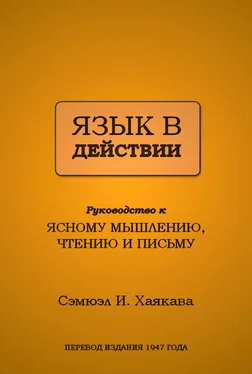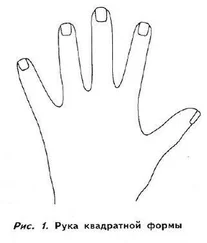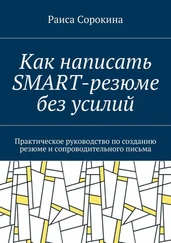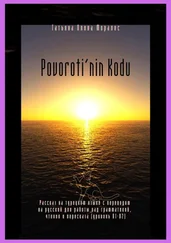В своей попытке доступно изложить всё в одной книге, я посчитал целесообразным не указывать все источники своих заимствований, так как это могло сделать страницы чрезмерно трудночитаемыми. Поэтому, вместо сносок, я сразу приведу список источников, которым я особенно признателен.
Thurman W. Arnold, The Symbols of Government , Yale University Press, 1935.
The Folklore of Capitalism , Yale University Press, 1937.
A.J. Ayer, Language, Truth and Logic , Oxford University Press, 1936.
Eric Temple Bell, The Search for Truth , Reynal and Hitchcock, 1934.
Men of Mathematics , Simon and Schuster, 1937.
Leonard Bloomfield, Language , Henry Holt and Company, 1933.
Boris E. Bogoslovsky, The Technique of Controversy , Harcourt, Brace and Company, 1928.
P. W. Bridgman, The Logic of Modern Physics , The Macmillan Company, 1927.
Karl Britton, Communication: A Philosophical Study of Language , Harcourt, Brace and Company, 1939.
Rudolf Carnap, Philosophy and Logical Syntax , Psyche Miniatures (London), 1935.
Stuart Chase, The Tyranny of Words , Harcourt, Brace and Company, 1938.
Felix S. Cohen, "Transcendental Nonsense and the Functional Approach," Columbia Law Review , Vol. 35, pp. 809–849 (June, 1935).
Committee on the Function of English in General Education, Language in General Education (Report for the Commission on Secondary School Curriculum), D. Appleton-Century Company, 1940.
John Dewey, How We Think , D. C. Heath and Company, 1933.
William Empson, Seven Types of Ambiguity , Chatto and Windus (London), 1930.
Ernest Fenellosa, The Chinese Written Character (ed. Ezra Pound), Stanley Nott (London), 1936.
Jerome Frank, Law and the Modern Mind , Brentano's, 1930 (also Tudor Publishing Company, 1936).
Lancelot Hogben, Mathematics for the Million , W. W. Norton and Company, 1937.
T. E. Hulme, Speculations , Harcourt, Brace and Company, 1924.
H. R. Huse, The Illiteracy of the Literate , D. Appleton-Century Company, 1933.
Wendell Johnson, Language and Speech Hygiene: An Application of General Semantics , Institute of General Semantics (Chicago), 1939.
Alfred Korzybski, The Manhood of Humanity , E. P. Dutton and Company, 1921.
Science and Sanity: An Introduction to Non-Aristotelian Systems and General Semantics , Science Press Printing Company (Lancaster, Pa.), 1933. Second edition, 1941.
Q. D. Leavis, Fiction and the Reading Public , Chatto and Windus (London), 1932.
Irving J. Lee, "General Semantics and Public Speaking," Quarterly journal of Speech , December, 1940.
Vernon Lee, The Handling of Words , Dodd, Mead and Company, 1923.
Lucien Levy-Bruhl, How Natives Think , Alfred A. Knopf, 1926.
Kurt Lewin, Principles of Topological Psychology , McGraw-Hill Book Company, 1936.
B. Malinowski, "The Problem of Meaning in Primitive Languages," Supplement I in Ogden and Richards' The Meaning of Meaning .
C. K. Ogden, Opposition: A Linguistic and Psychological Analysis, Psyche Miniatures (London), 1932.
C. K. Ogden and I. A. Richards, The Meaning of Meaning , Harcourt. Brace and Company, third edition, revised, 1930.
Jean Piaget, The Language and Thought of the Child , Harcourt, Brace and Company, 1926.
The Child's Conception of the World , Harcourt, Brace and Company, 1929.
Oliver L. Reiser, The Promise of Scientific Humanism , Oskar Piest (Nevi' York), 1940.
I. A. Richards, Science and Poetry , W. W, Norton and Company, 1926.
Practical Criticism , Harcourt, Brace and Company, 1929.
The Philosophy of Rhetoric , Oxford University Press, 1936.
Interpretation in Teaching , Harcourt, Brace and Company, 1938.
James Harvey Robinson, The Mind in the Making , Harper and Brothers, 1921.
Edward Sapir, Language , Harcourt, Brace and Company, 1921.
Vilhjalmur Stefansson, The Standardization of Error , W. W. Norton and Company, 1927.
Allen Upward, The New Word: An Open Letter Addressed to the Swedish Academy in Stockholm on the Meaning of the Word IDEALIST, Mitchell Kennerley (New York), 1910.
Thorstein Veblen, The Theory of the Leisure Class , The Modern Library.
A. P. Weiss, The Theoretical Basis of Human Behavior , R. G. Adams and Company (Columbus, Ohio), 1925.
V. Welby, What Is Meaning? Macmillan and Company, 1903.
Я глубоко благодарен многим друзьям и коллегам из США за их идеи и критику в письмах и разговорах в ходе работы над этой книгой. Я благодарю профессора К. Райта Томаса из университета Висконсина и профессора Уолтера Хендрикса из Технологического Института штата Иллинойс, которые внесли вклад в эту книгу тем, что поддерживали мои исследования в этом направлении и предоставляли возможность представлять эти материалы на занятиях. Однако больше всего я благодарен Альфреду Коржибски. Без его системы Общей Семантики, мне было бы сложно и даже невозможно представить много новой информации из областей науки, философии и литературы. Его принципы тем или иным образом повлияли почти на каждую страницу этой книги, а его дружественные замечания и терпеливые отзывы помогали на каждом этапе написания.
Сложно не удивляться часто повторяемой фразе «получать что-то за просто так», будто это некое извращённое стремление нарушителей общественного спокойствия. Помимо наших животных способностей, практически всё, что у нас есть, досталось нам даром. Разве даже самый самодовольный реакционер может польстить себе тем, что он изобрёл искусство письма или книгопечатания, или был первооткрывателем своих религиозных, экономических и моральных взглядов, или каких-либо приспособлений, которые помогают ему добывать пищу и одежду, или таких источников удовольствия как литература и изобразительное искусство? Короче говоря, цивилизация – это нечто немного другое, чем получение чего-то за просто так.
Джеймс Харви Робинсон
Читать дальше












